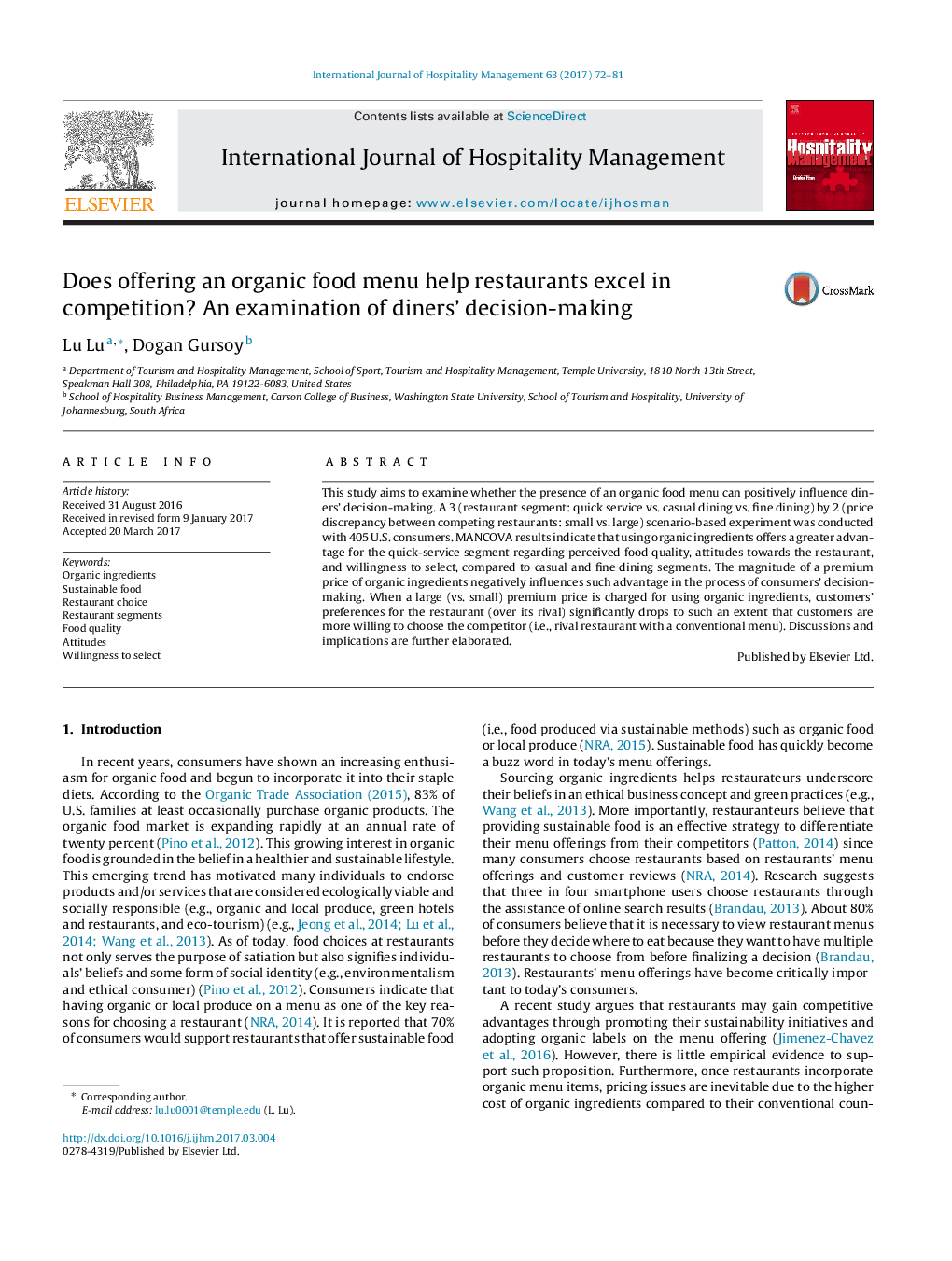| Article ID | Journal | Published Year | Pages | File Type |
|---|---|---|---|---|
| 5108257 | International Journal of Hospitality Management | 2017 | 10 Pages |
Abstract
This study aims to examine whether the presence of an organic food menu can positively influence diners' decision-making. A 3 (restaurant segment: quick service vs. casual dining vs. fine dining) by 2 (price discrepancy between competing restaurants: small vs. large) scenario-based experiment was conducted with 405Â U.S. consumers. MANCOVA results indicate that using organic ingredients offers a greater advantage for the quick-service segment regarding perceived food quality, attitudes towards the restaurant, and willingness to select, compared to casual and fine dining segments. The magnitude of a premium price of organic ingredients negatively influences such advantage in the process of consumers' decision-making. When a large (vs. small) premium price is charged for using organic ingredients, customers' preferences for the restaurant (over its rival) significantly drops to such an extent that customers are more willing to choose the competitor (i.e., rival restaurant with a conventional menu). Discussions and implications are further elaborated.
Related Topics
Social Sciences and Humanities
Business, Management and Accounting
Strategy and Management
Authors
Lu Lu, Dogan Gursoy,
